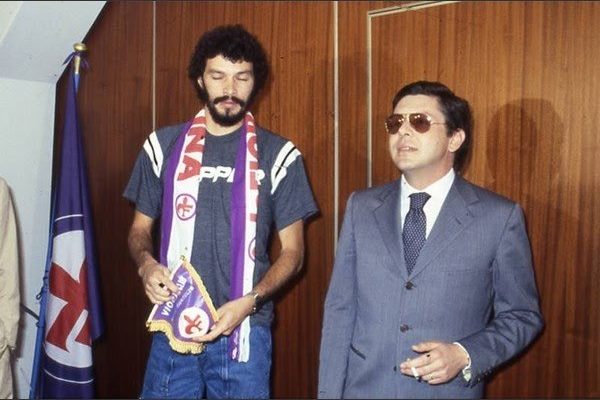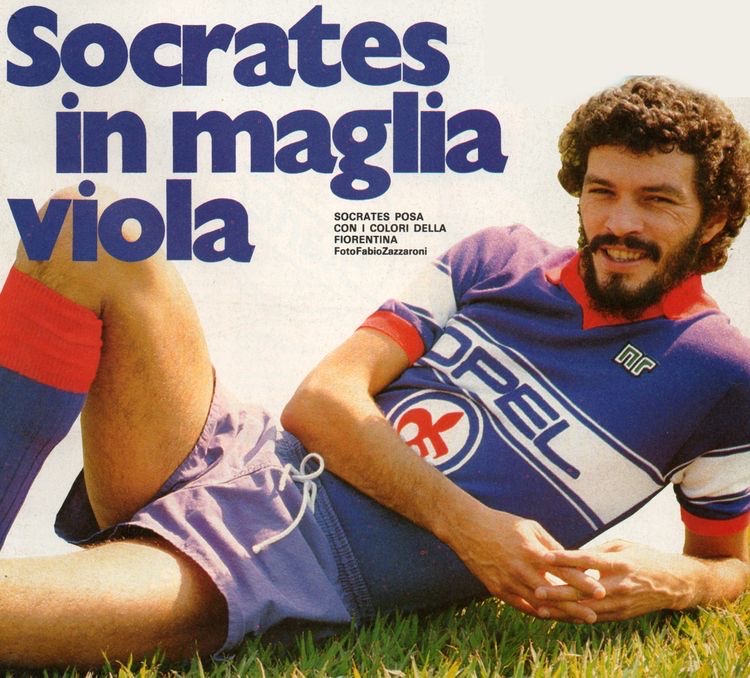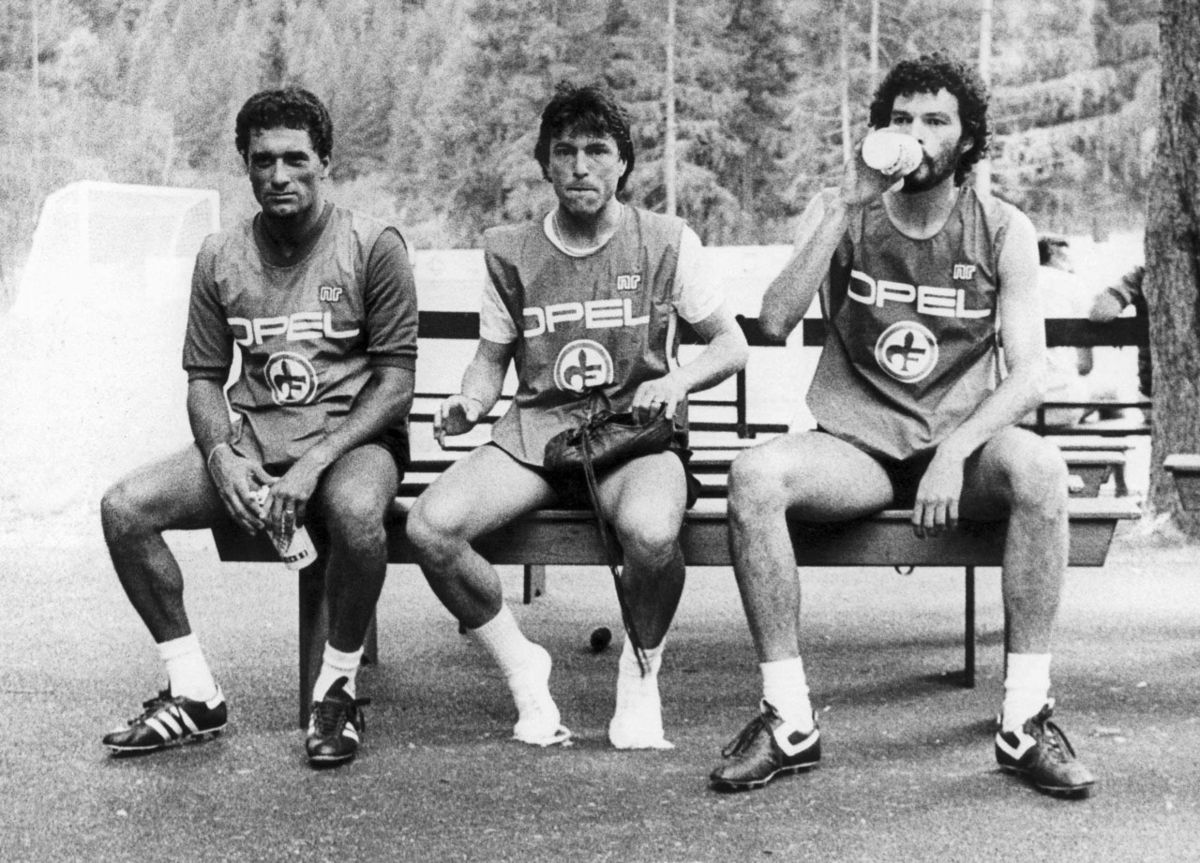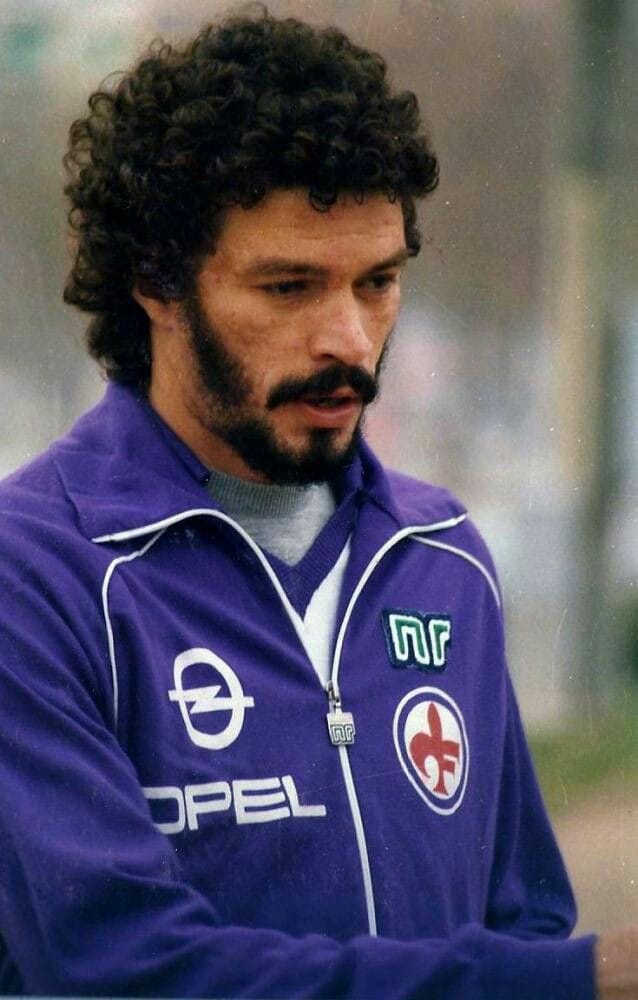“The horse that runs on grass doesn’t run on sand.” — Brazilian proverb
On a cold and sunny afternoon in February 1984, Fiorentina hosted Sampdoria. Less than five minutes into the second half, an innocuous challenge between Giancarlo Antognoni and Luca Pellegrini on the edge of the box left both players on the ground. The pair had to be substituted immediately, but Antognoni had come off worse. The diagnosis: a fracture of the tibia and fibula.
Despite this setback Fiorentina held on to finish the Serie A season in an impressive third. But by then it was apparent that doctors’ initial prognosis of a ninety-day recovery for Antognoni had been optimistic. Facing the entire 1984-85 season without the club’s captain and leader, Fiorentina president Ranieri Pontello turned to the transfer market.
Sócrates was already well-known in Italy; two years earlier he had captained Brazil at the World Cup, scoring a memorable goal past Dino Zoff in the famous defeat to Italy, the eventual champions. Tall, thin, and bearded, by the early 80s he was arguably the most recognisable midfielder in the world. Blessed with exceptional vision, passing and aerial ability, as well as an impressive shot, he was nicknamed “Calcanhar de Ouro” (Golden Heel) for his penchant for backheeling the ball.
The 30-year-old had already garnered the attention of Roma, but he ultimately chose Florence. “It’s the most beautiful city,” he said. “That’s where I want to live.” Other members of that 1982 Brazil side — Falcao, Cerezo and Zico — were already playing in Serie A, while Junior also arrived in Europe that summer. Fiorentina themselves boasted several players that had shone in Spain, including Claudio Gentile and Gabriele Oriali. But it was clear from the moment he touched down in Florence that Sócrates was different. “I’m not interested in cars or luxurious houses, or in growing old with my fortune,” he announced upon his arrival. “Italy appeals to me because I can learn things directly from books.”


Sócrates’ viola adventure began with a friendly against his old club Corinthians, organised as part of the 5.3 billion lire deal which had brought him to Tuscany. While he was signed to fill the hole left by Antognoni, on the pitch Sócrates was not a direct replacement for the Fiorentina captain. Experienced regista Eraldo Pecci took over the mantle of the number ten shirt while the Brazilian wore his usual number eight. Strolling about in midfield, Sócrates’ class was evident, and fans cheered whenever he performed his trademark backheel. His first goal for the club was a typically nonchalant chip, in a 5-0 home win over Atalanta. But such moments were sporadic, and critics soon picked up on his leisurely style and tendency to drift out of games for long periods.
Coaching the side was 41-year-old Giancarlo De Sisti, a member of Fiorentina’s 1969 scudetto-winning team. One Monday morning, after a typically lacklustre Sunday performance, he spotted Sócrates with his head in the newspaper. “Did you see what they wrote about you?” De Sisti asked. The player glanced up. “The sports pages don’t interest me,” he responded. “I’m reading the politics section.”
Indeed, Sócrates was almost as noted for his left-wing politics as his football. Born into an intellectual household, unlike many Brazilian footballers, Sócrates did not go by a nickname: he and two of his brothers were named after Greek philosophers. As a ten-year-old he saw his father destroy his beloved personal library after it came under threat in the 1964 coup d’etat, an event which sparked his activism. At Corinthians the midfielder co-founded the “Democracia Corinthiana” movement, which revolutionised the running of the club by involving players in institutional decisions and encouraging political engagement with its fans. A vocal opponent of Brazil’s dictatorship, it is no surprise Sócrates also opposed Italy’s militaristic approach to preparing for football matches. He wasn’t the first Brazilian to suffer from a case of saudade in Serie A, but Fiorentina’s rigorous training sessions, carefully monitored diet, and strict curfews imposed upon his iconoclastic nature.
The novelty of Sócrates’ unconventional ways initially drew curiosity from teammates, though some considered his political views idealistic and dated, even calling him a “sessantottino” (sixty-eighter). But his rebelliousness also created tension in the dressing room. Clashes with Argentina captain Daniel Passarella — a rival at international level and Sócrates’ opposite in almost every way — were frequent. One evening goalkeeper Giovanni Galli invited his new teammate over to his house. Sócrates showed up at two in the morning.
Meanwhile De Sisti became increasingly frustrated by Sócrates’ tactical indiscipline and casual work ethic. “He struggled to integrate,” the coach acknowledged. “When we travelled to away games he’d just lie on the backseat. Once I caught him with a cigarette in his mouth. ‘Don’t you dare light that,’ I warned. He just sighed and went to sleep.” But Socrates was a self-described “anti-athlete,” once stating, “I cannot deny myself certain lapses from the strict regime of a sportsman.” De Sisti resigned himself to the fact that the Brazilian would not bend. “We made a stop at a service station,” he remembered. “The others players all went inside, but Sócrates just leaned on the bus smoking one cigarette after another.”

Such excesses were all the more ironic given that Sócrates was also a qualified doctor, having earned his medical degree in Ribeirão Preto while playing for the local club, Botafogo. This qualification came in handy during a match with Lazio when he was able to administer assistance to an injured Lionello Manfredonia. But his medical expertise could not help De Sisti, who was forced to abandon his post mid-way through the season after developing a brain abscess. When the coach returned to health Fiorentina tried to pair him with the veteran Ferruccio Valcareggi, the man who had coached De Sisti at the 1970 World Cup. Instead, De Sisti resigned before Christmas and Valcareggi took over alone. Already out of the UEFA Cup, Fiorentina won just four more league matches before scraping to ninth place in Serie A.
It was clear to all that Sócrates’ Italian experience was over, but he seemed to blame others for his disappointing season. “I’m worth the money they spent on me,” he insisted. “But I can’t imagine they’d come all the way to São Paulo without getting to know me first. If they just wanted a world class player they could have taken Zico.” The Brazilian was not only critical of his club, but the game in Italy in general. In a bitter departing statement he referred to Italian players as “employees on the pitch.”

In November 1985, Antognoni came off the bench against Bari, nineteen months after breaking his leg. By that point Sócrates was back in Brazil, this time in Rio de Janeiro, where he’d teamed up with Zico at Flamengo. Another move to Santos followed before he ended his career with a return to his first club, Botafogo de Ribeirão Preto. Fifteen years later Sócrates came out of retirement to make a single appearance for Garforth Town, a lower league club from West Yorkshire. His beard had greyed and his pace had slowed to walking.
Sócrates once said that he played football professionally because it enabled him to buy petrol and beer, and though his movement relented his drinking never did. He died in 2011. Fiorentina wore black armbands for their next home match against Roma, and the minute’s silence before kick-off was applauded throughout. Two banners were unfurled on the Curva Fiesole honouring the departed Brazilian. The first read, “Un’ ultima pinta per il dottore” (One last pint for the doctor). The second, “Dottore vola in cielo a fare un tacco da Dio,” had a clever double meaning, inviting “the Doctor” to fly up to the sky and do a backheel. Da Dio could be translated as “in God’s house,” but also, simply, “a really good backheel.” Invoking both his footballing talent and intellect, it was a fitting tribute that confirmed the strange spiritual bond that remained between Sócrates and Fiorentina, even if theirs was not quite a match made in heaven.
This blog was written by James Campbell Taylor (@jamescampbelltaylor) – Tifoso Viola and creator of @shirttalesnyc.

